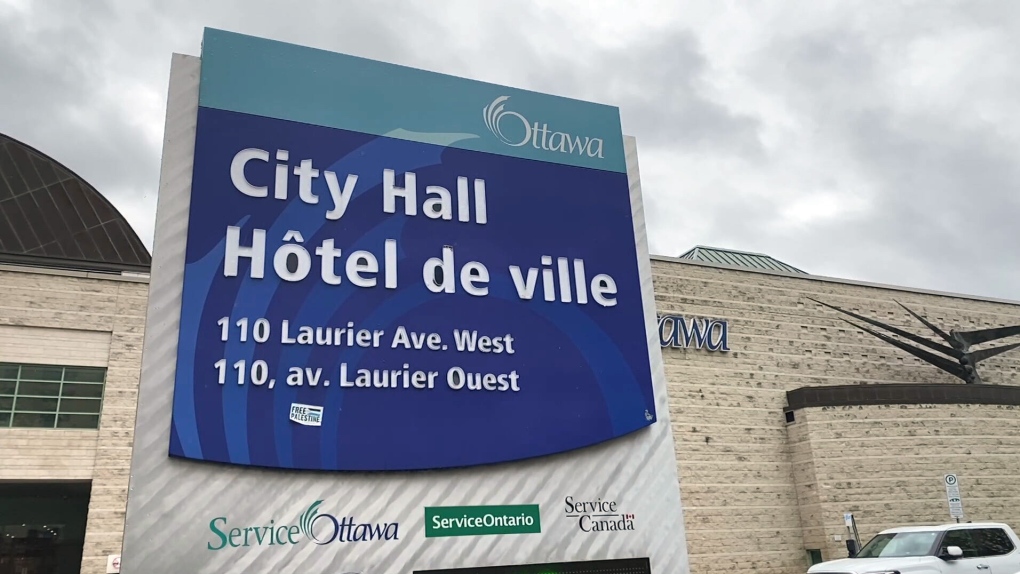
Ottawa residents are facing at least a 2.9 per cent property tax hike in 2025, but questions remain about how the city will fill a $120 million hole in the transit budget.
The finance and corporate services committee approved the budget directions to draft the 2025 City of Ottawa budget on Monday by a vote of 9-3. Councillors Shawn Menard, Rawlson King and Jeff Leiper voted against the budget directions.
“I have more of a problem with the political priorities here. Right now, I have trouble getting community centres funded,” Menard said. “We’re struggling on things like bathrooms in parks, we can’t keep them open on the infrastructure side. Splash pad closures, pools, sidewalk repairs – we’re having a lot of issues keeping up with basic services and so I have a lot of trouble with the across the board 2.9 per cent approach.”
Under the proposed budget directions, staff will draft a budget with a 2.9 per cent property tax increase to cover “most areas of city operations,” but it doesn’t include an increase in the levy or fares to cover the shortfall in the OC Transpo budget.
A 2.9 per cent property tax hike, with a transit levy increase of at least 2.9 per cent, would add $125 to the average urban property tax bill. A 2.9 per cent tax hike would cost the average commercial property owner an additional $268.
Several councillors raised concerns with how the city is drafting the 2025 budget by setting a 2.9 per cent tax increase before the process begins.
“Arbitrary is an appropriate word,” Coun. Jessica Bradley said. “I think that these budget directions are a bit weak and not entirely reflective of our priorities as a city and absent of a real number.”
Coun. Laine Johnson said, “The way that we continue to budget towards a cap means that there is no space for new, good ideas. This is about the maintaining of a status quo that residents are already dissatisfied with.”
The draft 2025 City of Ottawa budget will be tabled on November 13, with final approval on December 11. The Ottawa Police Services Board will be directed to draft a 2025 budget with a 2.9 per cent increase.
Transit funding
Staff are proposing a range of levers to help cover a $120 million shortfall in the 2025 OC Transpo budget, if the federal and Ontario governments do not provide new funding to help OC Transpo.
The range of options include:
- A Transit Levy increase of between 2.9 and 37 per cent
- Fare increase between 2.5 per cent and 75 per cent
- Fare discount adjustments
- Operating efficiencies and service reductions between $0 and 120 million
- Capital investment deferrals
- “Identify any other levers for consideration” during budget talks
A 37 per cent increase in the transit levy would be the equivalent of a 7 per cent hike in property taxes, which would see homeowners facing a 9.9 per cent tax hike in 2025.
A 75 per cent increase in transit fares would see a single ride increase to $6.60, which an adult monthly pass would cost over $220 a month.
Mayor Mark Sutcliffe has been calling for $140 million a year over three years from the federal and Ontario governments to support transit, saying Ottawa should receive its fair share of funding.
A new report from the Financial Accountability Office shows the Toronto economic region receives more subsidies per resident compared to Ottawa. Toronto received $191 dollars per resident in municipal and provincial subsidies in 2022-23, while Ottawa received $59.61.
The Financial Accountability Office shows Ottawa received $31.91 per residential in provincial funding in 2024-25, while Toronto receives 196.49 per resident – and the gap will increase to $175.90 for the Toronto area in 2028-29, while Ottawa receives $31.60.
The funding formula includes funding for GO Transit in the Toronto area.
Coun. Glen Gower, who chairs the Transit Commission, said finding $140 million in savings would be cutting the transit budget by 14 per cent.
“Cutting service entirely on one day a week, which is just a ridiculous idea that would prevent people from getting to work, to jobs,” Gower said.
He adds OC Transpo needs more than $120 million to improve the system.
“$120 million is the bare minimum that we need to meet the needs of our city, to keep people moving around here.”